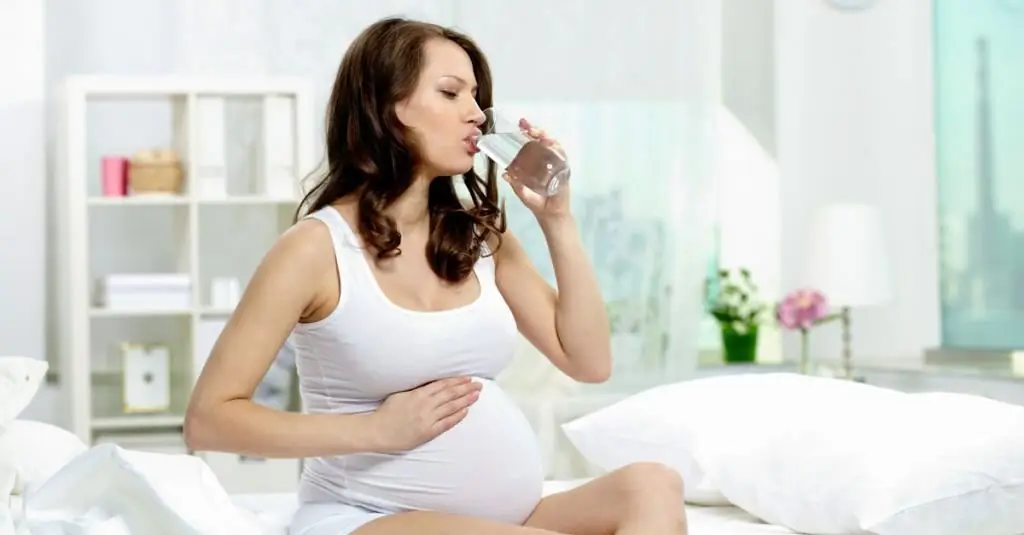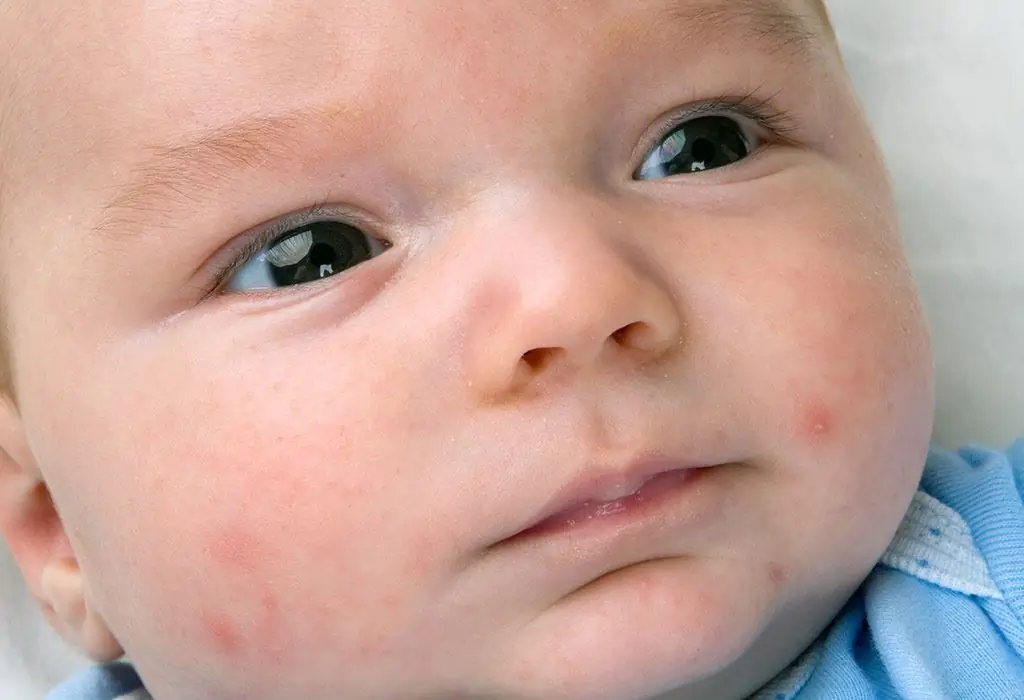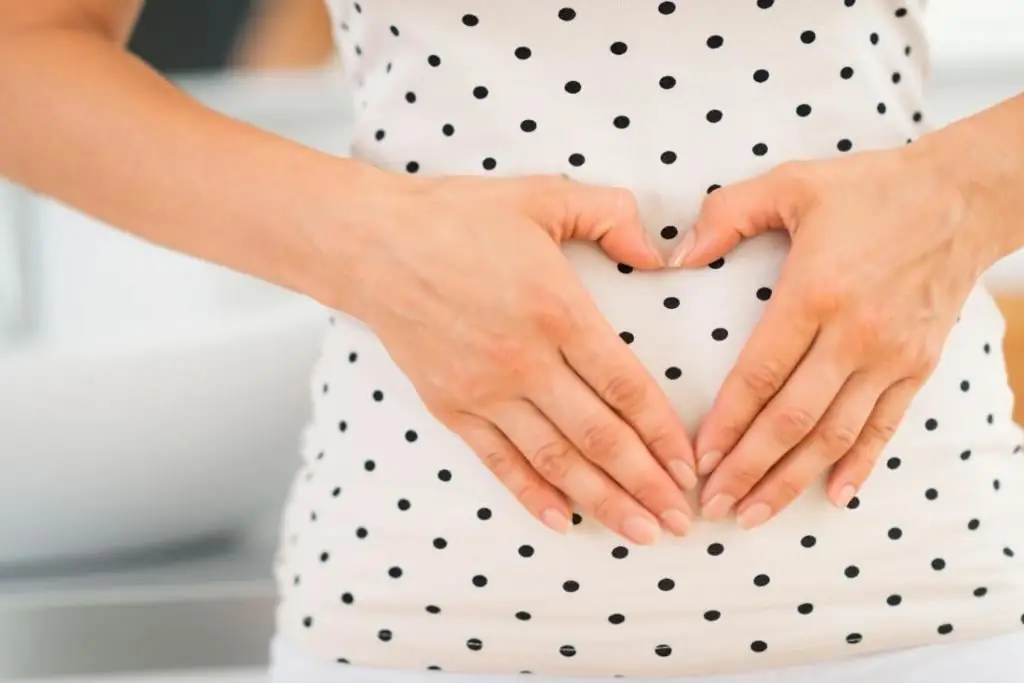2026 Author: Priscilla Miln | miln@babymagazinclub.com. Last modified: 2025-01-22 17:55:23
After the birth, the baby immediately finds himself in completely new conditions for him. The temperature here is much lower than intrauterine, there are many visual, tactile, sound and other stimuli. He immediately needs to adjust to a different way of eating and breathing. This period is accompanied by colossal changes in all organs and systems of a small organism and is characterized by specific transient states. They are physiological, characteristic of newly born children and do not recur in later life. But such conditions border on pathological reactions of the body. With a combination of adverse conditions, they can turn into diseases.
Transient states
Transient physiological states of newborns occur immediately from the moment of birth and soon disappear without a trace. These are natural processes for babies. They are called border or transition states because they appear at the border of two stages.the life of the child (intrauterine and extrauterine). Under certain circumstances, they can turn into a pathology. The transition of the physiological state of a newborn into a pathological one can occur due to prematurity of the baby, difficult childbirth, unfavorable course of pregnancy, stress after birth.

Neonatologists are involved in the observation and treatment of newborn babies.
There are a lot of physiological transient states of newborns, as each system of his small organism adapts. In addition, not all physiological conditions in a baby are necessarily manifested. Many of them go unnoticed.
Let's dwell on the noticeable, obvious physiological conditions of newborns.
Body weight
In the first day, newborns lose weight. This is a physiological or natural process that is observed in all newborns, regardless of their birth weight.
The main reason is that in the first days of life, the baby's body loses a huge amount of water and uses the nutrients accumulated in the womb.
Normally, such a loss should not exceed 7-8% of the original weight. By about the 10th day of life, the child restores its original weight, after which its weight regularly increases, which is an indicator of the correct development of the body and its growth.

For faster adaptation of the baby, he needs to organize an adequate thermal regime, goodcare, proper feeding. If the baby has lost more than 10% of the original body weight and has not recovered after two weeks, it should be shown to the pediatrician.
If the child does not lose weight, you should pay attention to this and show the baby to the doctor. It is possible that fluid is not excreted from the body, which indicates a pathology of the kidneys.
Heat exchange
The physiological transient conditions of newborns include a violation of heat metabolism, when the child's body temperature slightly decreases or rises. In newborns, thermoregulation processes are still imperfect. Babies cannot keep their body temperature constant. They are very sensitive to any temperature changes in the environment. That is, their body reacts to any temperature fluctuations in the street or in the room. They quickly overheat or supercool, as their skin is rich in blood vessels and poor in sweat glands. It is very important to observe the temperature regime in the children's room, to protect the baby from overheating or drafts. The optimum air temperature in the children's room should be 23 ºС.
Skin
The physiological conditions of the newborn include changes in the skin. This is observed in almost all infants. The most common redness of the skin, which appears after the removal of the original lubricant. Everything disappears on its own after a week.

Many children have flaky skin. It occurs on 3-6 days. Most often itmanifests itself on the abdomen, limbs, chest. Particularly strong peeling in post-term babies. This condition does not require treatment. After bathing, skin areas should be lubricated with sterile oil.
Toxic erythema often appears in babies. It is a rash with yellow-gray nodules. It is located around the joints on the limbs or on the chest. It's over in a week.
Hormonal crisis
One of the physiological conditions of newborns, which often frightens parents, is a hormonal or sexual crisis. It is most often seen in girls. In the first two weeks after birth, the genitals greatly increase in size. In addition, the mammary glands swell, and a liquid similar to milk may be released from the nipples. These phenomena are due to the fact that immediately after birth, maternal hormones are present in the baby's body. They affect the genitals and mammary glands of the child. This reaction of a small organism will pass without a trace by the end of the month. Typically, this condition does not require treatment. If the child has become restless, he has a body temperature, you should immediately consult a pediatrician. You should not try to squeeze fluid out of the mammary glands - this will cause pain to the child and lead to mastitis.

In addition, parents should be aware that girls in the first days of life appear abundant discharge from the genital tract, they can be of different colors, often bloody. This condition does not require treatment, disappears after about a month. Only in thatif the discharge has acquired an unpleasant odor and a purulent color, the girl should be shown to a pediatric gynecologist.
Intestines
The physiological state of newborns in pediatrics is dysbacteriosis. Bacteria colonize the intestinal mucosa. Moreover, it is inhabited not only by positive microorganisms, but also by pathogenic microflora. Dysbacteriosis is a physiological condition of the baby, but under some circumstances it can cause a serious illness.
In the middle of the first week of life, the baby has an upset stool. The reason for this phenomenon is the transition to a new way of eating. First, meconium passes from him - the original feces, on the 4th - 5th day a transitional stool appears, which is characterized by a heterogeneous consistency and color (mucus, lumps, yellow-green color).
By the end of the first week, stools tend to settle and look like yellowish slurry.

Urinary system
Urinary organs also adapt to new conditions. They adapt to work in conditions of hormonal changes and moisture loss. Often such a physiological condition of newborns as uric acid infarction of the kidneys develops, which manifests itself in the form of yellow-brown urine. This is due to the deposition of crystals of uric acid s alts in the kidneys and metabolic disorders in a small organism. If the color of the urine does not return to normal by the end of the second week, a doctor should be consulted.
In the very first hourslife, there is an absence or excretion of a small amount of urine. This is true for all newborns. As a rule, on the second day, urination improves.
Umbilical wound

Usually, on the 4th day after birth, the umbilical stump falls off, and an umbilical wound forms in its place. In order to prevent its infection, the following measures should be taken: twice a day, treat the wound with hydrogen peroxide and brilliant green. After about 10 - 12 days, the wound will begin to heal and the treatment can be stopped.
Physiological jaundice
Approximately 2-3 days after birth, the baby's skin may acquire a yellowish tint. This physiological borderline condition of newborns is observed in approximately 70% of children. It is due to the fact that some enzymes do not work at full strength and bilirubin accumulates in the body, which stains the skin. The urine and stool of the baby at the same time retain their usual color. As a rule, jaundice fades away by the 14th day of life of the crumbs, it does not require treatment. But if the child is very thin, lethargic, passive, you should immediately contact the pediatrician, as this is not typical for a special physiological condition of newborns, called primordial jaundice.
Signs that indicate liver dysfunction:
- Appearance of jaundice immediately after birth.
- Distribution of yellowness to the shins, hands and feet.
- Icterus continues for more than 2 weeks.
- Discolored chair.
- No food.
- Feeding anxiety.
- Shrill scream.
- Edema.
- Fever and shivering.
- Weakness and lethargy of the child.
High levels of bilirubin in the baby's blood can adversely affect the development of the nervous system. Therefore, in the presence of such indicators, the child is treated.
Immunity

A baby in the first months of life is very vulnerable in terms of the development of inflammatory processes. His immunity is not yet developed. He was in the womb of his mother in sterile conditions, and after birth, his body was immediately colonized by bacterial microflora from the environment. That is why in the first days of life, due to the unformed natural protective reaction of the skin and mucous membranes, such a physiological state of a newborn child arises as immunodeficiency. It is especially pronounced in premature and underweight babies. The duration of this condition can be up to a month or more. It is necessary to organize the correct care for the baby, the cleanliness of everything that surrounds him.
To strengthen the immunity of the child, you should ventilate the room more often, do wet cleaning in the nursery every day, walk in the fresh air.
You should also do air baths and a light massage before bathing.
Instead of a conclusion
Childbirth is a difficult and responsible period not only in the life of a woman, but also of her newborn baby. This is a major stress for both. Environmental changes lead to response reactions of the crumbs organism, which manifest themselves in the form of transientstates. Pediatricians identify several such reactions that occur in infants in the first days of life. As a rule, they do not require treatment and go away on their own after a while.
But such states are called borderline, because they can easily become pathological. It is for this reason that a baby is regularly examined by a pediatrician and a nurse in the first month of life.
Parents should not worry about the occurrence of a particular physiological condition in a baby. In 98% of cases, they are absolutely safe and do not require medical intervention.
Recommended:
Pathologies of newborns: types and causes

Moms who understand little about medicine often cannot figure out the difference between trauma at birth in a child and neonatal pathology. Of course, in both cases we are talking about diseases of varying severity, but their causes of development are completely different
Physiological changes in a woman's body during pregnancy. Fetal development and woman's sensations

From the first minute of the fusion of the egg with the sperm to the first cry of the newborn, all systems and organs of the mother and fetus are closely interconnected. To maintain and develop a new life in the mother's body, almost everything changes: organs, appearance, well-being, preferences
Pimples in newborns on the body: causes, diagnosis and treatment methods. Diaper dermatitis in newborns

Pimples in newborns on the body are of particular concern to parents. They are red, white, single, large, small, etc. Moms are interested in the causes of pimples, as well as what to do in this situation. There are many known factors that cause acne. Some of them do not require any treatment, while others are an urgent signal to see a doctor
Low hCG during pregnancy: rules for taking tests, deciphering the results, clinical norms and pathologies, effects on the fetus and consultations of gynecologists

Throughout pregnancy, a woman has to take a variety of tests and examinations many times. The initial test is blood for human chorionic gonadotropin. With it, it is determined whether there is a pregnancy. If you view the results in dynamics, you can note some pathologies and abnormalities in the development of the fetus. The results of such an analysis guide the doctor and outline the tactics of pregnancy management
Do I need to protect myself during pregnancy: hormonal and physiological changes in a woman's body, the necessary conditions for conception and explanations of gynecologists

For expectant mothers and fathers, waiting for a baby is one of the most enjoyable times in life. A woman treats her body with care. She tries to follow the right diet, spend a lot of time outdoors. Many spouses are also interested in the question: “Do I need to protect myself during pregnancy?” After all, partners are worried that intimate relationships can harm the expectant mother and embryo

